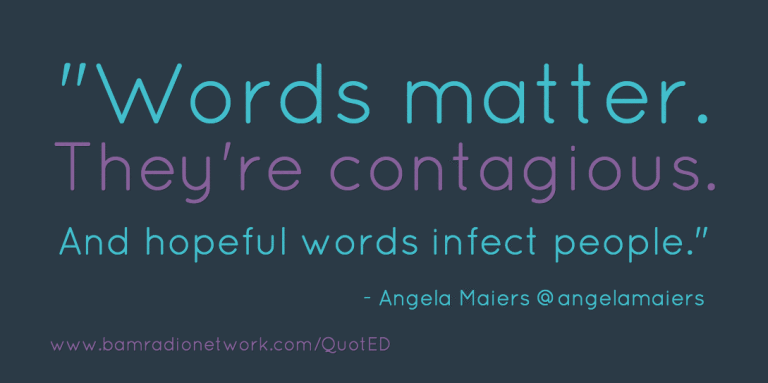
“Words matter. They’re contagious. And hopeful words infect people.” –Angela Maiers
Every day I hear stories of moments when one life has been transformed by another simply by the power of words.
In my own life, I have had the good fortune to have mentors who have believed in me and who have expressed their belief. That expression propelled me to strive harder and to reach beyond what I imagined was possible. We cannot underestimate the power of language to inspire and to instill hope and confidence. And we cannot underestimate the power of language to harm and diminish. Language matters and language makes a difference.
On May 10th, we celebrated the work and life of William (Bill) Grinker at our annual Wildcat Spring Cocktail party. Bill’s career spans decades, and his work has transformed the way we approach some of society’s biggest challenges: homelessness, unemployment, and equity. Bill cited the line in John F. Kennedy’s famous inaugural speech: “Ask not what your country can do for you, ask what you can do for your country” as the catalyst for the commencement of his life’s work. Bill is among many who were moved to action. A single sentence inspired a generation to service.
Our mission at Fedcap is to create systems, influence policies, develop programming, and innovate solutions that will eliminate barriers to economic well-being. Our days are filled with the execution of our strategy to that end. For so many, we are that catalyst that propels them toward previously unimagined possibilities. To the individuals that seek help from us, our words—and our listening—are what matter most.
As leaders, team members, and practitioners, our words have the power to create the future we envision. By being deliberate, intentional, and precise in our words, we are able to catapult action. One key to improving the way we use language is first to allow space for conversation and to be aware of what is behind our habitual ways of communicating. For example, Robert Kegan and Lisa Lahey in their book How the Way We Talk Can Change the Way We Work reflect that a common communication default is to make complaints. They suggest that complaints can be reframed as expressions of commitment to a particular value. Think about something you habitually complain about. What does that complaint signify about what you value? What if you were to speak directly about the value rather than the complaint? The use of more direct language opens a pathway to action rather than keeping one stuck in the complaint.
As colleagues, as leaders, as stakeholders, and as practitioners, we can help reframe the stories and the language of those we serve by seeing through the complaint or the habitual story to a new lens that reflects their hopes and aspirations. “Nothing will ever change,” becomes, “I want to make a change.” That reframed language has momentum and possibility.
Many of us are not aware of the influence we have on others—on our colleagues, our stakeholders, and those whom we serve. But in fact, we can make a difference by listening and by being careful with our talk. By seeing through negative talk of others, we can reframe their thinking into language that sparks possibility. This is how we transform lives. Yes, our actions speak volumes—and at the same time our words can ignite the power of possible.
As always, I welcome your thoughts.